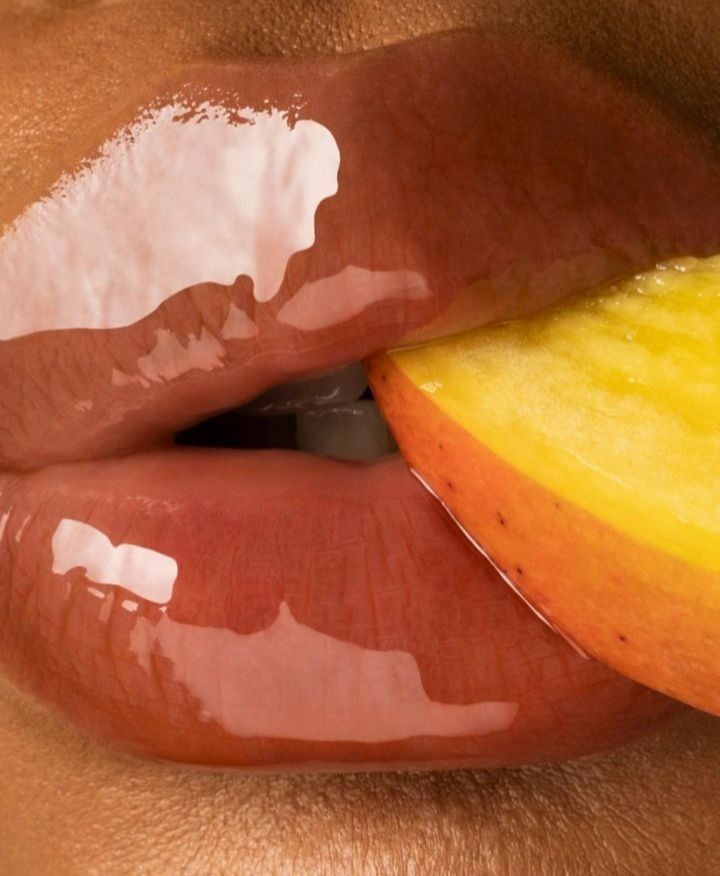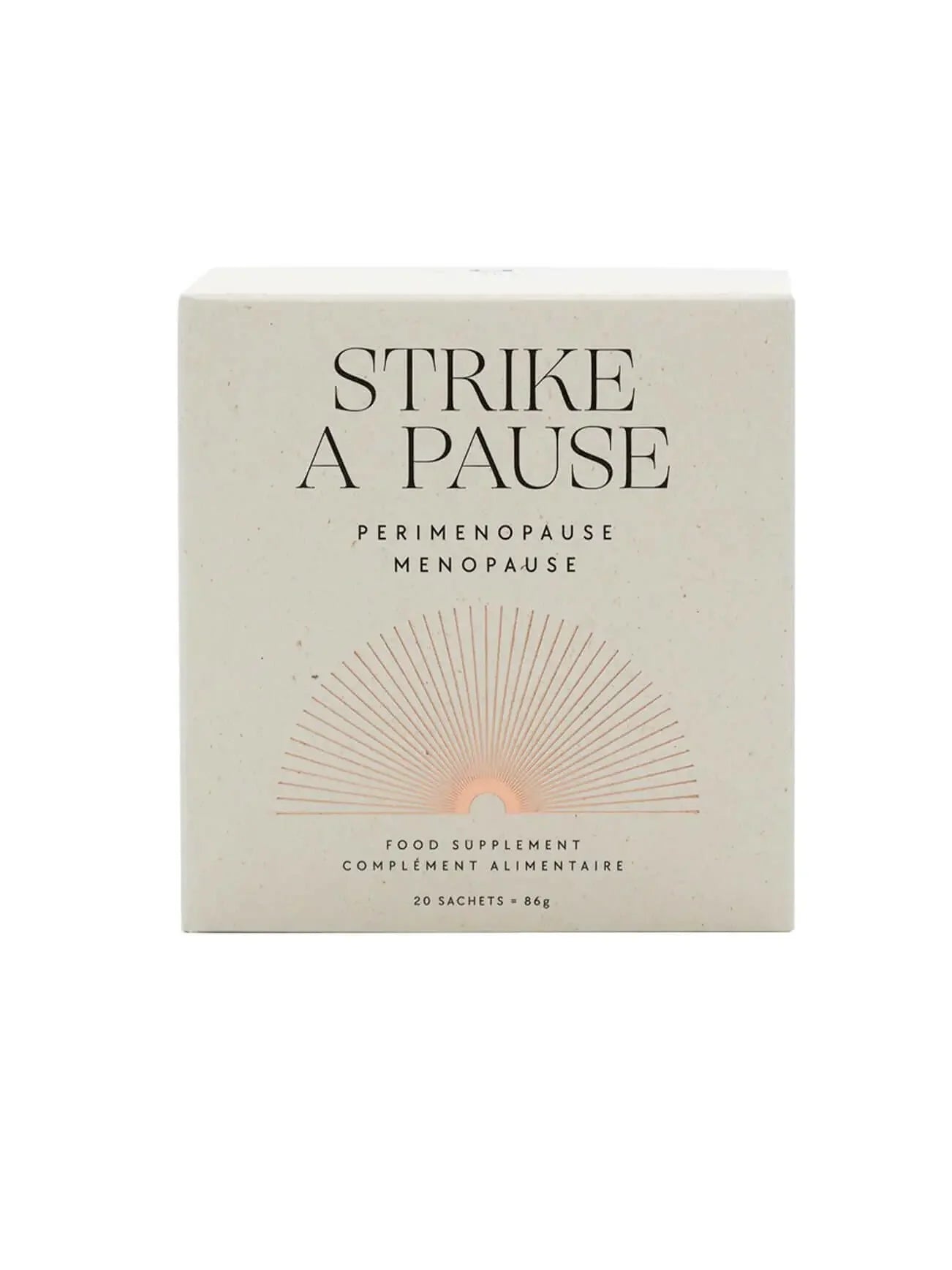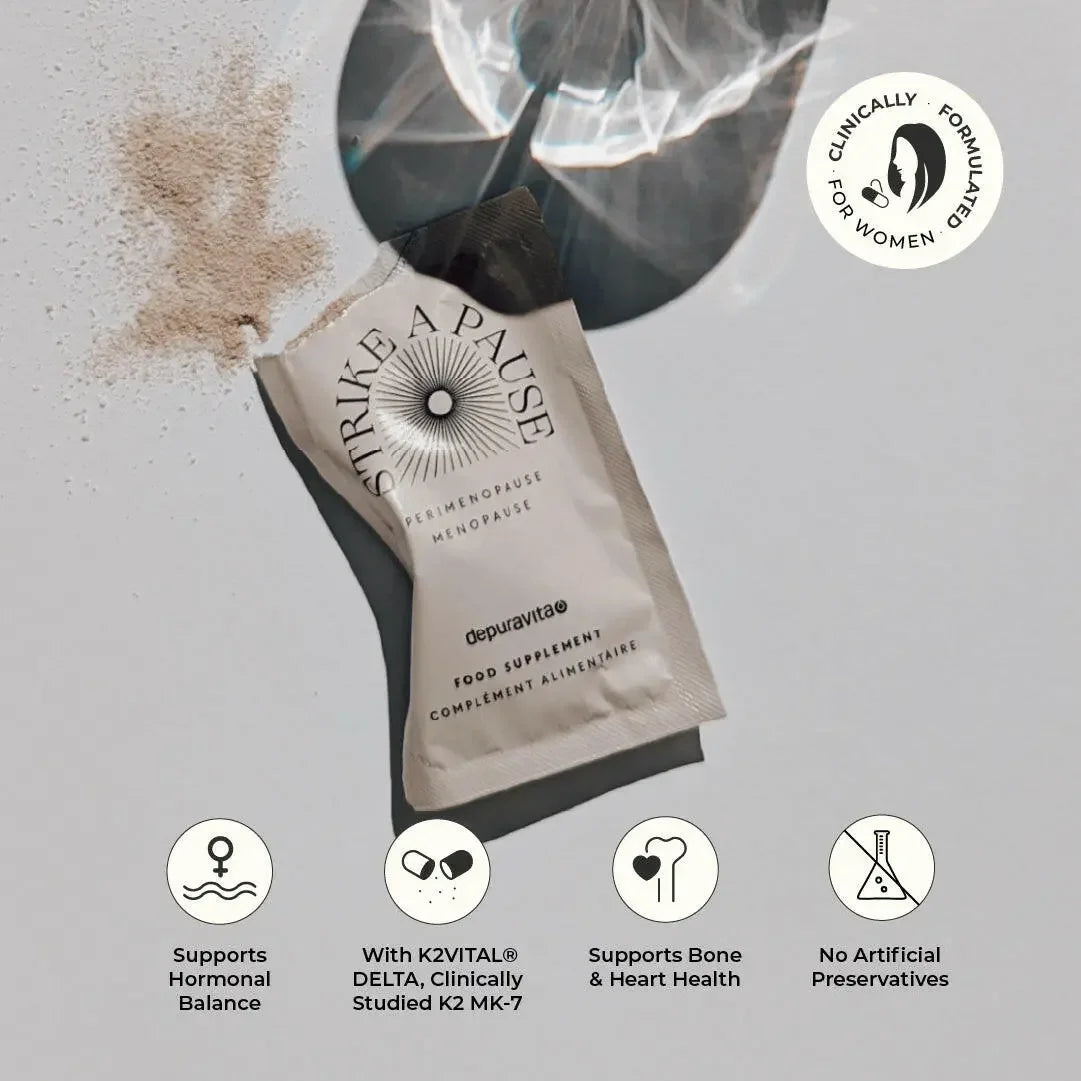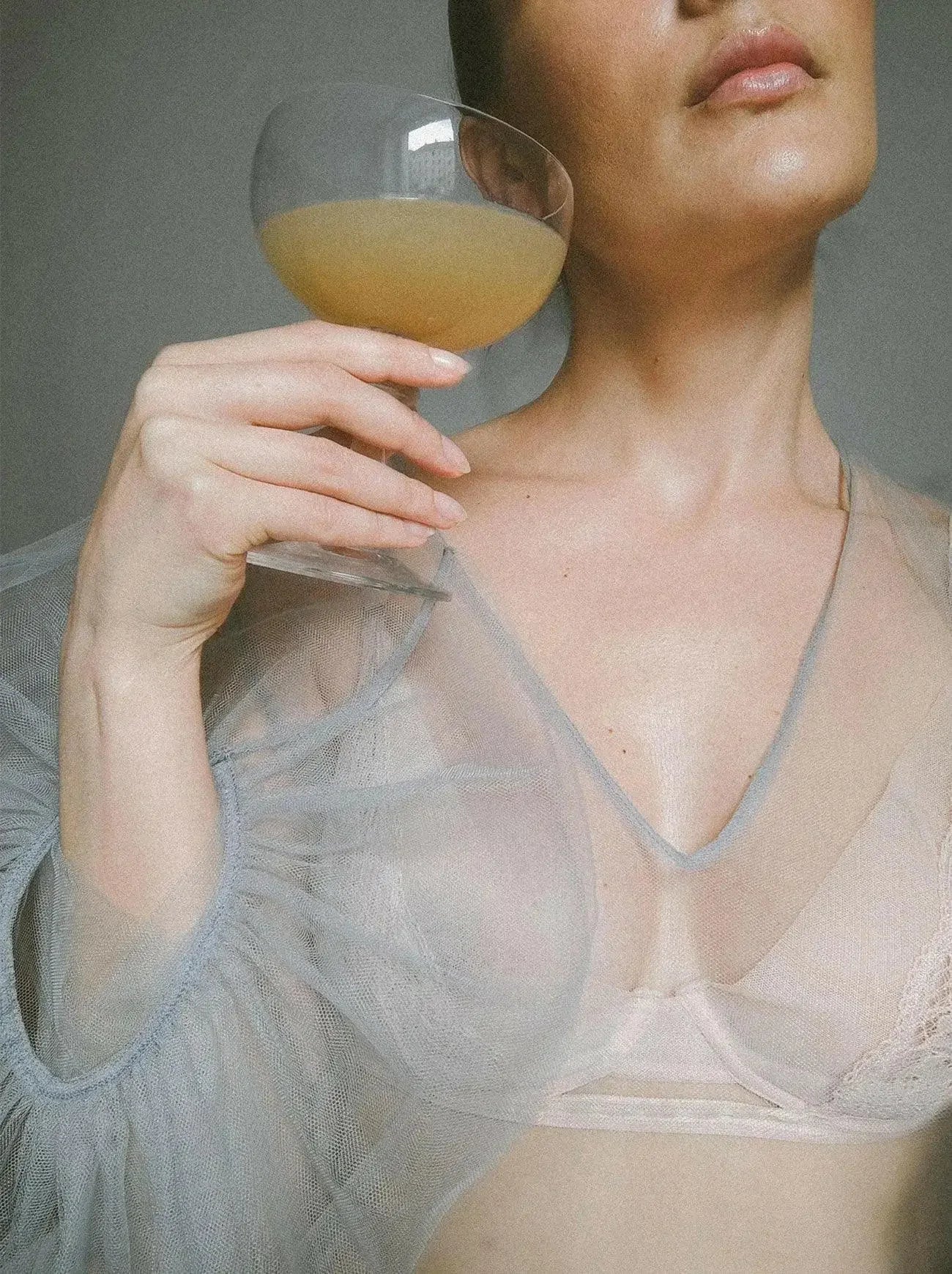
Nathalie Picquaert — The Secret to Timeless Skin
We sat down with the founder of Anadrea and Biologique Recherche expert who left us speechless with her porcelain skin and ageless beauty.

Estrogen, a key hormone during a woman’s reproductive years, plays a role in more than just fertility. It’s essential for maintaining the hydration and elasticity of mucosal tissues—whether in the eyes, the skin, or intimate areas. When estrogen levels fall during menopause, these tissues lose their ability to retain moisture.
Dry Eyes
The surface of the eye relies on tear production for lubrication and protection. Estrogen supports this process, ensuring the tears contain the right balance of water, oils, and proteins. Without it, the tears that should provide relief evaporate too quickly, leaving the eyes feeling dry, gritty, and uncomfortable.
Vaginal Dryness
Similarly, estrogen is vital for the health of vaginal tissue. It keeps the walls of the vagina moisturized, elastic, and resilient. As estrogen declines, this tissue becomes thinner, drier, and more prone to irritation.
Discover ways to support vaginal hydration naturally
At first glance, these symptoms might appear worlds apart. But dig a little deeper, and a clear link begins to emerge.

What ties dry eyes and vaginal dryness together? The answer lies in the nature of mucosal tissues and how they respond to hormonal shifts.
The result is a dual challenge that affects vision and comfort, sometimes making even routine activities feel burdensome.
The effects of dry eyes and vaginal dryness extend far beyond physical discomfort. They infiltrate daily life in ways that can feel both frustrating and isolating. Imagine the simple act of reading becoming a challenge due to blurred vision or the discomfort of dryness interrupting a casual walk. These seemingly minor disruptions can accumulate, gradually eroding confidence and quality of life.
The decline in estrogen manifests in unexpected ways. For some, it begins with a barely noticeable irritation—an itch, a slight blurring of vision—that grows into a persistent source of distraction. Tasks that once felt effortless, such as working at a computer, driving, or even enjoying time outdoors, now require additional effort and attention.
This is particularly true for professional environments where focus and clarity are paramount. Dry eyes, for instance, can strain productivity, as prolonged screen time exacerbates symptoms. Vaginal dryness, on the other hand, can quietly chip away at one’s sense of well-being, introducing discomfort into even routine activities.
Physically, these symptoms may seem manageable, but their emotional toll is harder to quantify. Discussions about eye health are often clinical and straightforward, but vaginal dryness remains veiled in discomfort or embarrassment. This silence can lead to isolation, with women hesitating to seek advice or treatment.
What’s striking is how common these issues are, yet how rarely they’re addressed openly. This gap in dialogue perpetuates the stigma, leaving many women feeling as though they must navigate these challenges alone. The reality, however, is that shared experiences often reveal universal truths, offering comfort and solidarity.
Strike a Pause: Natural Menopause Support
Each sachet combines a blend of key ingredients, including vitamins such as D3 and K2 MK7, along with phytoestrogens from red clover. These ingredients are traditionally recognized for their role in women's health during this life phase.
The formula also includes an adaptogenic blend, known for its use in wellness practices to promote balance and ease during times of change. Borage oil, containing gamma-linolenic acid (GLA), adds another layer of support, making Strike A Pause a holistic addition to your daily routine. Together, these ingredients are harmonized to help women feel grounded and supported during this natural transition.



Found in everyday foods such as soy, flaxseeds, and red clover, phytoestrogens are nature’s gentle answer to declining hormone levels. These compounds bind to estrogen receptors in the body, subtly mimicking the hormone’s effects without the intensity of synthetic alternatives. Unlike hormone replacement therapy (HRT), which carries potential risks, phytoestrogens provide a more balanced, sustainable option for many women.
Incorporating phytoestrogens into your routine doesn’t have to be complicated. A handful of flaxseeds added to your morning smoothie, a cup of red clover tea in the evening, or a supplement tailored for menopause can go a long way in supporting hydration and elasticity in tissues. Over time, these small adjustments create meaningful change, offering relief for both dry eyes and vaginal dryness.
The beauty of phytoestrogens lies in their versatility. Unlike topical treatments that focus on one area, phytoestrogens work from within, addressing systemic changes caused by estrogen decline. Their benefits extend beyond hydration to include improved tissue resilience and reduced inflammation—two critical factors for combating dryness.
By nourishing the body with these natural compounds, women can experience not only physical relief but also a sense of empowerment, knowing they are addressing the underlying causes of their symptoms rather than merely masking them.
Unlike a fleeting inconvenience, these symptoms rarely resolve without intervention. They linger, shaping how one engages with the world. Addressing them requires a nuanced understanding of their hormonal origins, but it also demands an acknowledgment of their broader implications. This isn’t just about managing dryness; it’s about reclaiming a sense of ease and enjoyment in life.
For many, this means turning to solutions that don’t just mask the symptoms but address their root causes. It’s here that natural options, such as phytoestrogens, come into focus, offering a pathway to relief that feels as sustainable as it does effective.
Relief doesn’t have to be dramatic to be transformative. Small, consistent changes can have a profound impact. Reintroducing comfort into daily life—whether through a drop of moisture for the eyes, a nourishing supplement, or a shift in dietary habits—creates a ripple effect.
What emerges is not just a strategy for relief but a renewed confidence in navigating this phase of life. Dry eyes and vaginal dryness may be linked by biology, but the solutions they require are holistic, addressing both body and mind.
This perspective reshapes menopause itself, not as an obstacle but as an opportunity—a moment to reflect, recalibrate, and prioritize well-being in its fullest sense. For women willing to engage with these challenges, the rewards are undeniable: a life lived with greater awareness, clarity, and vitality.
Scientific studies have begun to uncover the depth of this connection, offering insight into how estrogen deficiency shapes these symptoms—and what can be done about it.
1. The Eye-Menopause Link
A study published in The Journal of Clinical Endocrinology & Metabolism found that menopausal women are at a significantly higher risk of developing dry eye syndrome. The researchers highlighted the role of hormonal changes, noting that treatments addressing estrogen levels showed promise in alleviating symptoms.
2. Vaginal Dryness and Estrogen
Research featured in Menopause: The Journal of The North American Menopause Society explored the relationship between estrogen and vaginal health. The findings underscored how hormonal changes reduce tissue elasticity and hydration. Notably, the study also pointed to phytoestrogens as a potential remedy.
3. Phytoestrogens: Nature’s Answer
A comprehensive review in Nutrients highlighted the benefits of phytoestrogens—plant-based compounds that mimic estrogen in the body. The review noted improvements in both ocular and vaginal dryness symptoms among menopausal women who incorporated phytoestrogen-rich foods or supplements into their routine.